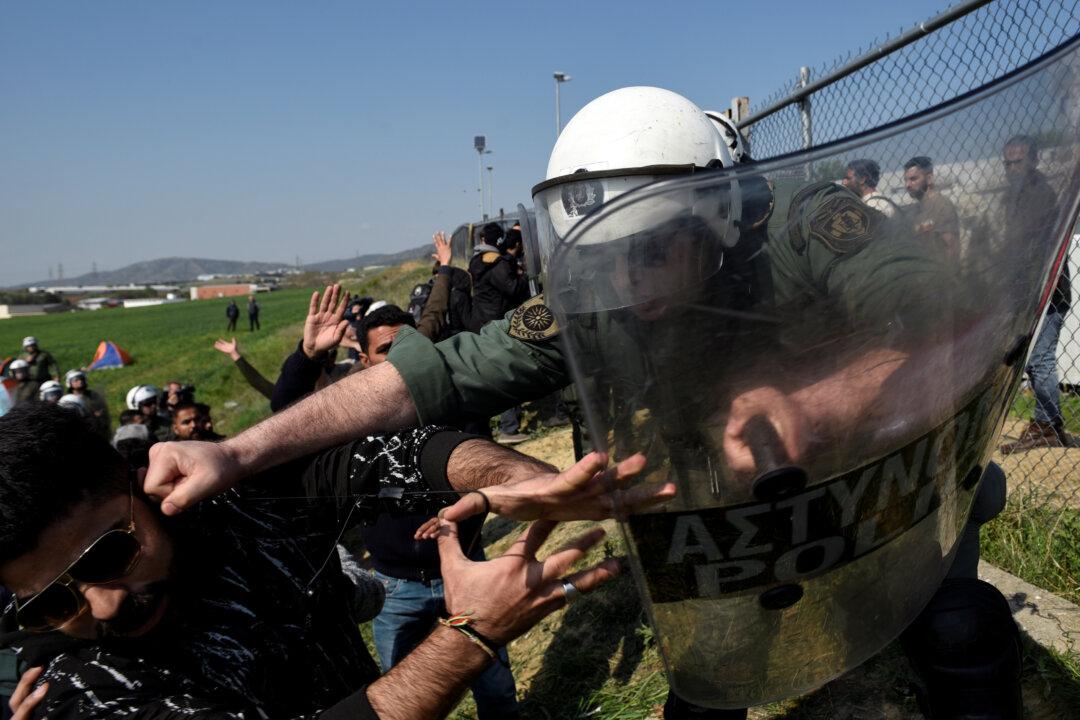DIAVATA, Greece—Dozens of refugees and illegal immigrants stuck in Greece gathered in a field near the country’s northern border on Thursday, April 4, seeking to travel onward to northern Europe.
Small groups of people including children arrived at the field next to the migrant camp of Diavata near the border with North Macedonia, carrying their belongings on their backs.





